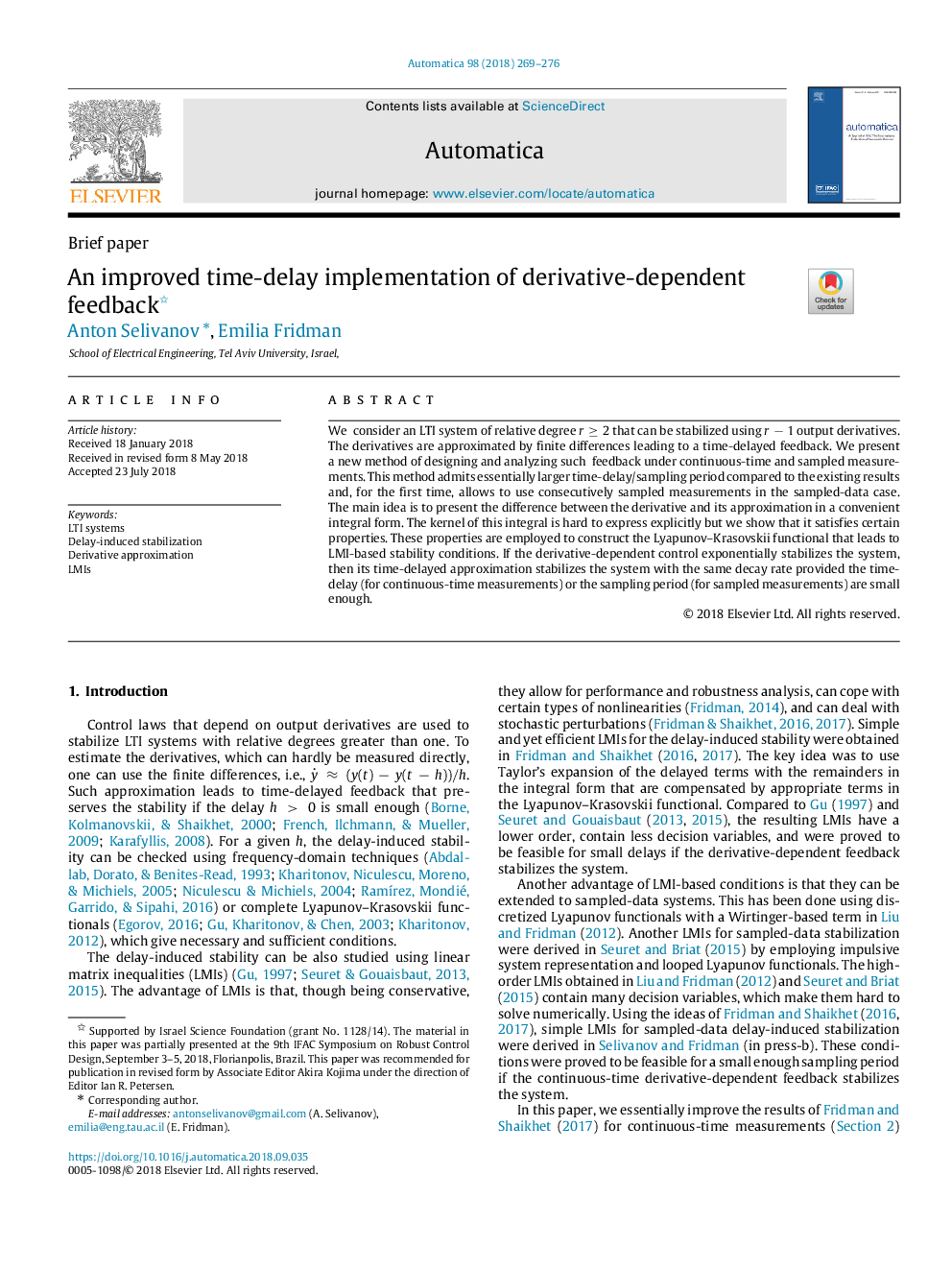| Article ID | Journal | Published Year | Pages | File Type |
|---|---|---|---|---|
| 11027893 | Automatica | 2018 | 8 Pages |
Abstract
We consider an LTI system of relative degree râ¥2 that can be stabilized using râ1 output derivatives. The derivatives are approximated by finite differences leading to a time-delayed feedback. We present a new method of designing and analyzing such feedback under continuous-time and sampled measurements. This method admits essentially larger time-delay/sampling period compared to the existing results and, for the first time, allows to use consecutively sampled measurements in the sampled-data case. The main idea is to present the difference between the derivative and its approximation in a convenient integral form. The kernel of this integral is hard to express explicitly but we show that it satisfies certain properties. These properties are employed to construct the Lyapunov-Krasovskii functional that leads to LMI-based stability conditions. If the derivative-dependent control exponentially stabilizes the system, then its time-delayed approximation stabilizes the system with the same decay rate provided the time-delay (for continuous-time measurements) or the sampling period (for sampled measurements) are small enough.
Related Topics
Physical Sciences and Engineering
Engineering
Control and Systems Engineering
Authors
Anton Selivanov, Emilia Fridman,
